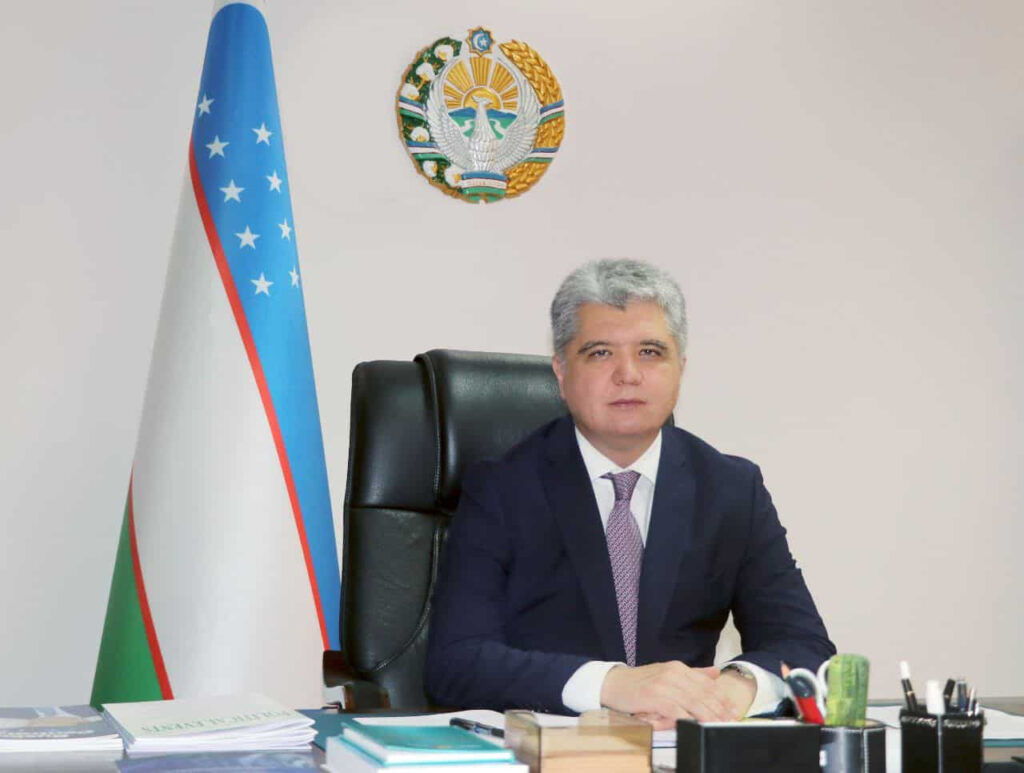Uzbekistan has approved a new constitution for which the country is scheduled to hold a referendum on April 30. Preparations are underway for the countrywide referendum to approve the constitution which has provisions that declare Uzbekistan a “sovereign, democratic, legal, and social state”.
Speaking to WION’s Sidhant Sibal, the Uzbek ambassador to India, Dilshod Akhatov reflected on the important tenets of the updated constitution. He said that “the constitution provides that the state will assume a number of new obligations to reduce poverty, provide employment and protect against unemployment. In general, the norms containing the social obligations of the state are tripled.”
The constitution also enshrines new rules from personal rights to expanding the powers of parliament.
Speaking about the preparation for the referendum and important aspects of the updated constitution, Ambassador Akhatov said that the country has been going through a historical stage of its development in recent years.
“The concept of ‘New Uzbekistan’ has been formed in the international community. President Shavkat Mirziyoyev expressed his opinion on the need to reform the constitution in November 2021 in his inaugural speech, specifying that such a proposal comes from the people of the country. This process takes into account proposals, international standards and advanced foreign experience. During the public discussions of the draft constitutional law, more than 222,000 proposals were received. More than 400 international documents, constitutions of about 190 countries have been carefully analysed,” the ambassador said.
Uzbekistan constitutional referendum: What all has been updated in Uzbek constitution?
Akhatov said that the number of articles in the constitution have been increased from the current 128 to 155, and norms from 275 to 434.
“That is, 65 per cent of the text of the Basic Law is updated based on the proposals of our people. In particular, the provisions on human rights and freedoms have increased three and a half times. As a solid legal basis and a reliable guarantee of the long-term development of our country and the future prosperous life of our people, it is indicated that Uzbekistan is a “sovereign, democratic, legal and social state”, and that these principles cannot be changed, he said.
“In general, the norms containing the social obligations of the state are tripled. This indicates that Uzbekistan is becoming a social state,” Akhatov added.
Uzbekistan constitutional referendum: Personal freedoms ‘inviolable’
Akhatov said that the new constitution strengthens guarantees of personal rights and freedoms of a person in accordance with the most advanced international standards.
“In particular, a person cannot be detained for more than 48 hours without a court order, and if the lawfulness and justification of the detention is not proven in court, the person is subject to immediate release (the Habeas Corpus Institute), and during detention, his rights must be explained in understandable language, and grounds for detention (Miranda Rules). In addition, the right of the accused and the defendant not to testify against himself, in other words, “the right to remain silent”, is fixed. These provisions guarantee the inviolability of personal freedom and the prevention of unlawful detention of people,” he said.
Uzbekistan constitutional referendum: Roadmap for Central Asian country to be a ‘free market economy’
Akhatov said that the updated constitution creates a solid foundation for the “formation of a truly free market economy by strengthening the guarantees of entrepreneurial activity, developing market relations, creating conditions for fair competition, ensuring a favorable investment and business climate, establishing a system of fair taxation, and limiting monopoly activities”.
Uzbekistan constitutional referendum: On freedom of speech and media rights
Akhatov said that the updated constitution guarantees the freedom of the media, their right to seek, receive, use and disseminate information. “Obstructing or interfering with the activities of the media and journalists will be subject to liability, which will increase freedom of speech and information,” he said.
“For the first time, the constitution includes a separate chapter on civil society institutions and guarantees for their activities, which will serve as a solid basis for strengthening the atmosphere of openness, transparency and legality in society, dialogue between the state and society, and establishing strong public control,” he added.
Uzbekistan constitutional referendum: On expanding the powers of parliament and judiciary
Akhatov said that the updated constitution is aimed at creating a strong parliament, a compact and responsible government, as well as an independent and fair judiciary to build a state that serves the people. “The powers of the Legislative (lower) chamber and the Senate (upper chamber) are significantly expanded, duplication in the work of the two chambers is eliminated, and their area of responsibility is clearly defined,” he said.
“In particular, the absolute powers of the Legislative Chamber are increased from the current 5 to 12, and the Senate – from 14 to 18. Such powers as consideration and approval of the candidacy of the Prime Minister, control over the execution of the state budget and consideration of the report of the Accounts Chamber have been transferred to the Legislative Chamber. The procedure for appointing the Prime Minister to the post is approved after the President submits his candidacy to the Legislative Chamber and is approved by the people’s deputies. At the same time, the number of members in the upper house will be reduced from the current 100 to 65, while maintaining equal representation of the regions through the election of 4 senators from each region and reducing the number of senators appointed by the President from 16 to 9,” he added.
Source: Wio News


